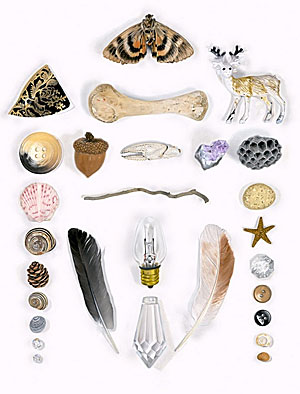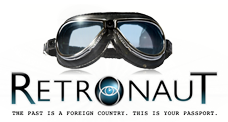 The designer and blogger Tina Roth Eisenberg has come up with a neat little to-do service with a cute name: TeuxDeux. She has pared this free offering back to the absolute essentials of to-do-ness: seven days viewed at once, a list below, order or day of task changed by drag and drop, click twice to finalise a task, click little cross to delete. Future tasks are black, past are grey and present tasks are red. And that's it. It works. One might wish for additional features and email > task capabilities, but any additional features would tend to muddy what is a very clean interface.
The designer and blogger Tina Roth Eisenberg has come up with a neat little to-do service with a cute name: TeuxDeux. She has pared this free offering back to the absolute essentials of to-do-ness: seven days viewed at once, a list below, order or day of task changed by drag and drop, click twice to finalise a task, click little cross to delete. Future tasks are black, past are grey and present tasks are red. And that's it. It works. One might wish for additional features and email > task capabilities, but any additional features would tend to muddy what is a very clean interface.
Atlas of Living Australia
 The Atlas of Living Australia is a user-friendly visualisation of data related to Australian ecosystems, species and conservation programs. Simple to use and well thought-out, the website exemplifies the massive power of the web in displaying a range of information and making it accessible and understandable. Users can check biodiversity in their own area, browse for species of interest or add their own records. So if you've just spotted the elusive Night Parrot, this is the place to let the world know.
The Atlas of Living Australia is a user-friendly visualisation of data related to Australian ecosystems, species and conservation programs. Simple to use and well thought-out, the website exemplifies the massive power of the web in displaying a range of information and making it accessible and understandable. Users can check biodiversity in their own area, browse for species of interest or add their own records. So if you've just spotted the elusive Night Parrot, this is the place to let the world know.
Give Your PDFs some Fizz
Soda PDF is a free PDF reader (in a crowded field) that renders a PDF as if it was a 3D magazine. One turns pages by 'pulling' the page across in a realistic simulation of an actual page turn. While emulating a print publication in such a literal way might seem retrograde, there is something satisying about the reading experience, and it is an aesthetically pleasing way to preview design work (particularly files destined for print). The effect renders very quickly and smoothly, and can be turned off if you want to go back to old fashioned flat viewing.
Neat Freaks United
 File under: people with way too much time on their hands, or: how to make your fetish into a business. Austin Radcliffe spends his days shooting and curating images of objects arranged in aesthetically pleasing ways. In some ways his obsession is quite old school — collectors have long organised their finds by all sorts of esoteric criteria. While the neat aspect will probably irk messy people, the various collations, coteries and concatenations are often quite pretty, fun, and interesting for the sheer variety of things revealed in the world.
File under: people with way too much time on their hands, or: how to make your fetish into a business. Austin Radcliffe spends his days shooting and curating images of objects arranged in aesthetically pleasing ways. In some ways his obsession is quite old school — collectors have long organised their finds by all sorts of esoteric criteria. While the neat aspect will probably irk messy people, the various collations, coteries and concatenations are often quite pretty, fun, and interesting for the sheer variety of things revealed in the world.
So Social
If you are a heavy user of social media and want to analyse your impact and efficiency in that sphere, Lifehacker co-founder and coder extraordinaire Gina Trapani has a tool for you. Thinkup "archives and analyzes your interactions across social networks", and ensures that information that Twitter, Facebook and Google+ might treat as ephemeral is preserved for future use and examination. Read this article and marvel at the amazing power of intelligently interpreted data.
The Past is a Foreign Country
 Looking backwards in time is to be constantly surprised. There's always so much that has been forgotten, and is genuinely strange and unfamiliar Seen in detail, eras often belie their stereotypes. How to be a Retronaut posts themed photo galleries chiefly from any decade of the last ten. Topics include Colour tourist photographs from the Soviet Union (1960s), Harlem Street Scenes (1930s), Pepsi advertisements (1950s), an Apple Gift Catalogue (1983), portraits taken in fake snow (Victorian England) and abandoned buildings of Detroit (2000s) and many, many more. The photographs and ephemera are often hard to contextualise and integrate, yet in an odd way, bring the past momentarily into the present.
Looking backwards in time is to be constantly surprised. There's always so much that has been forgotten, and is genuinely strange and unfamiliar Seen in detail, eras often belie their stereotypes. How to be a Retronaut posts themed photo galleries chiefly from any decade of the last ten. Topics include Colour tourist photographs from the Soviet Union (1960s), Harlem Street Scenes (1930s), Pepsi advertisements (1950s), an Apple Gift Catalogue (1983), portraits taken in fake snow (Victorian England) and abandoned buildings of Detroit (2000s) and many, many more. The photographs and ephemera are often hard to contextualise and integrate, yet in an odd way, bring the past momentarily into the present.
Capture Your Screen
The Windows screen capture feature is effective but pretty basic — dumping the display into memory, available for paste into image editing software. Google has released a free extension for its Chrome browser that gives finer grained control over snapshots of browser windows. Once installed, users can select a user-defined area, the entire window or the active area, and define shortcuts that invoke the various options.
360 degree world
 Google Street View gives users the chance to 'stand' on any of millions of streets and pan to see the scenery. But as every viewer knows, the average street is pretty prosaic, and the image quality is not fabulous anyway. Which brings us to 360cities. This immersive site has thousands of high resolution 360 degree images from all over the world — views of mountains, canyons, urban scenes, forest glades and massive crowds. The images are seamless, sharp and occupy your full screen with thousands of details that you can absorb at leisure. The interface is easy to navigate, piggybacking on Google maps (and also appearing as a layer in Google Earth), and once you get started, stopping is a problem. Check out some of their ultra high resolution images — the London Eye panorama is a jaw dropping 80 gigapixels.
Google Street View gives users the chance to 'stand' on any of millions of streets and pan to see the scenery. But as every viewer knows, the average street is pretty prosaic, and the image quality is not fabulous anyway. Which brings us to 360cities. This immersive site has thousands of high resolution 360 degree images from all over the world — views of mountains, canyons, urban scenes, forest glades and massive crowds. The images are seamless, sharp and occupy your full screen with thousands of details that you can absorb at leisure. The interface is easy to navigate, piggybacking on Google maps (and also appearing as a layer in Google Earth), and once you get started, stopping is a problem. Check out some of their ultra high resolution images — the London Eye panorama is a jaw dropping 80 gigapixels.
Diamonds are Forever
 Our client prospected for diamonds, and even diamond-hunters need a business card. Aside from the usual contact details, he was keen to give the reverse side of his card additional utility as a way of measuring objects and providing scale in photographs. He also intended to use it for jotting notes to include with samples. After ten years of use, he returned for an update and reported that the card/ruler had been very handy.
Our client prospected for diamonds, and even diamond-hunters need a business card. Aside from the usual contact details, he was keen to give the reverse side of his card additional utility as a way of measuring objects and providing scale in photographs. He also intended to use it for jotting notes to include with samples. After ten years of use, he returned for an update and reported that the card/ruler had been very handy.
Three colours from two colours — working with Pantone
 Working with two colours can be a challenge, but it is an interesting one. By combining the two chosen spot colours in a duotone, the designer can effectively generate a third colour. The third colour is tied to the other two and creates a harmonious overall effect. This job was designed to promote a lecture series staged by a local Library Corporation.
Working with two colours can be a challenge, but it is an interesting one. By combining the two chosen spot colours in a duotone, the designer can effectively generate a third colour. The third colour is tied to the other two and creates a harmonious overall effect. This job was designed to promote a lecture series staged by a local Library Corporation.
Information Wants to be Free
Getting Your Portfolio Online
Beyond Web-Safe Fonts
Writers Resources from AWM
Industry blogs for Australian Writers: AWMonline Guide
Industry News and Views
Australian Book Review
http://australianbookreviewblog.blogspot.com/
Contributors include editor Peter Rose and other ABR staff, and guest bloggers from the world of letters.
Barista
http://barista.media2.org/
A personal blog by screenwriter David Tiley, featuring filmmaking and culture news and views.
Booksller and Publisher
http://www.booksellerandpublisher.com.au/articles/
Bookseller and Publisher magazine's online news covering the Australian book industry.
Refreshed page

The Colour of Money
Cover for Nannies
 Our client wanted a cover design that emphasised the positive aspects of nannying. We used clear, direct typography, simple, child-associated colours and a large area of saturated colour to attract attention. Our design aims to reinforce the idea of a no-nonsense, practical, take-anywhere guide for real-life nannies. Besides, we have a small weakness for book covers within a book cover.
Our client wanted a cover design that emphasised the positive aspects of nannying. We used clear, direct typography, simple, child-associated colours and a large area of saturated colour to attract attention. Our design aims to reinforce the idea of a no-nonsense, practical, take-anywhere guide for real-life nannies. Besides, we have a small weakness for book covers within a book cover.